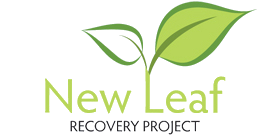Academic Stress and Substance Use

In the world of academia, where smart ideas happen, there’s a hidden issue-a quiet struggle with substances.
Imagine a wise professor having a quiet glass of wine at a conference or a hardworking student finding comfort in a late-night drink to ease stress. These scenes, rarely talked about openly, show a real problem-academic stress mixed with using substances.

Academic Burnout and Substance Use
In academia, a silent storm called academic burnout moves through classrooms and labs, leaving behind tired enthusiasm and frayed nerves. This happens because of tough demands and too much pressure.
As people in academia deal with big expectations, a worrying trend shows up, many turn to substances for a quick escape. It’s like turning up the pressure in the academic cooker, and sometimes, we all need a way out. For some, substances seem like the escape hatch.
Academic burnout is a state of exhaustion, both physically and emotionally. It affects scholars who are super committed to learning, as they experience high levels of stress, intense demands and a feeling of being overwhelmed. Many studies say lots of people in academia use substances, as way of coping that simply makes things worse.
Call Us Today: 0300 999 0330The Connection Between Stress and Substance Use
In academia, stress keeps people caught in a tough cycle. Trying to be excellent all the time brings intense stress, and some folks turn to substances for a break. But that short relief quickly turns into more stress because of the problems substances bring. It’s like getting stuck in a loop that’s hard to escape.
It’s a confusing loop. Stress pushes us to substances, and then substances bring more stress. Breaking free feels like trying to untangle messy wires in the dark.
Digging into why people in high-stress academia turn to substances shows that they see substances as quick fixes. Things like fearing failure, feeling like a fraud, and having too-high expectations make substances look appealing. Knowing these reasons is important to stop the cycle and find better ways to cope.
Alternative Paths to Stress Relief
Breaking free from the stress-substance cycle involves exploring alternative paths to release tension. Rather than turning to substances as a quick fix, academics can delve into a spectrum of alternatives, offering not only solace but also contributing to holistic well-being.
Embracing mindfulness practices, such as meditation or yoga, introduces a valuable toolkit for navigating stress with a centred and composed mind.
Simultaneously, regular exercise, even a brisk walk, emerges as a robust antidote, releasing endorphins that naturally alleviate stress. Beyond individual practices, seeking support from friends and colleagues fosters a sense of community, allowing for shared understanding and encouragement in the face of academic pressures.
Indulging in hobbies, taking short breaks to recharge, and maintaining a healthy work-life balance further fortify these strategies.
It’s essential to acknowledge that stress is part of academic life, but choosing healthier coping mechanisms can lead to sustained well-being and resilience. By embracing these alternatives, individuals in academia can foster a culture that prioritises mental health, ultimately breaking the harmful link between stress and substance use.
Call Us Today: 0300 999 0330Cultural Change
To stop the idea that substances are okay in academia, there needs to be a big change. Talking openly about it and making academia a supportive place is a crucial first step. The power to make things better is in the hands of everyone, both individuals and institutions.
Academia is in need of a change, it’s time to say substances aren’t the norm and to push for a space where support is what matters.
By breaking the harmful link between stress and substance use, academia can make success mean taking care of yourself. It will create a culture that thrives because everyone is strong.
Starting on the path to a healthier academic world means understanding the challenges and working together to make positive changes. It’s not just a wish; it’s a promise to everyone’s well-being in academia.
Contact New Leaf Recovery for Support
At New Leaf Recovery, we create an environment within our centre that prioritises well-being and is moving people away from substance reliance. It’s about encouraging resilience and support over unhealthy coping mechanisms.
If you, or someone you know, may be struggling with stress and substance use, reach out to us at New Leaf for various types of support for those with addiction.
Call Us Today: 0300 999 0330Receive a Free Call Back
"*" indicates required fields
A Complete Recovery Journey. From your initial enquiry, all the way through treatment and beyond with ongoing support, New Leaf Recovery are there to guide and support you.
New Leaf offers a complete journey of treatment, from initial detoxification and rehabilitation to ongoing support, including aftercare, family support, and beyond into long-term recovery.
Getting the right accommodation enables us to provide the right backdrop for our recovery methods. Any form of rehabilitation needs to happen in a safe, comfortable, secure and friendly environment.
Receive a Free Call Back
"*" indicates required fields










